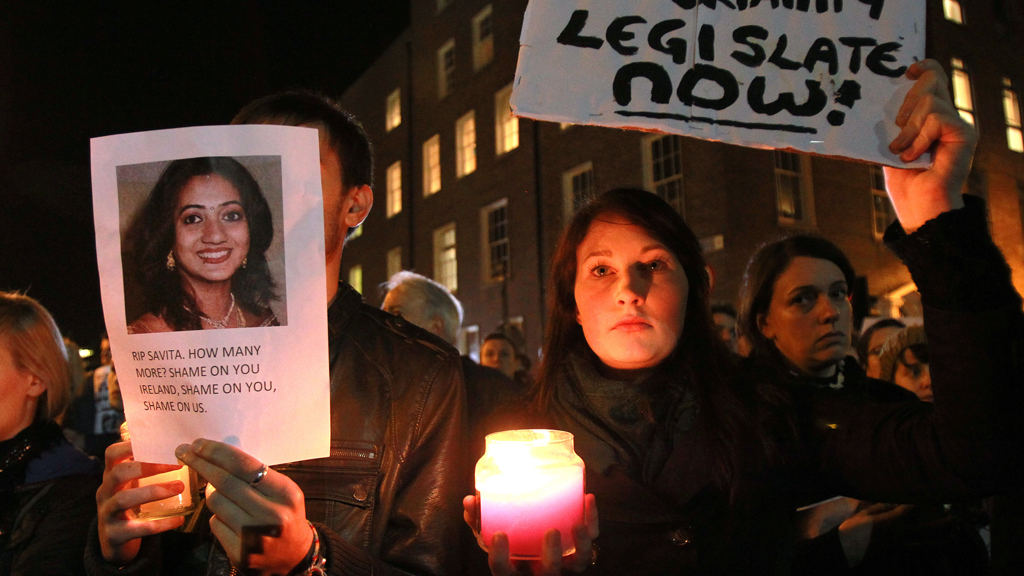Irish government pledges to ‘clarify’ abortion laws
The Irish government says abortion laws will be “clarified” after the parents of a pregnant woman who died after being denied an abortion blame the country’s laws for her death.

Irish abortion laws attracted international criticism after the death of Savita Halappanavar from septicaemia following a miscarriage, 17 weeks into her pregnancy.
Her parents called on the government to investigate what happened at the hospital and blamed Irish abortion laws for her death.
The law in Ireland does not specify under what circumstances the threat to the life or health of the mother is high enough to justify a termination, leaving doctors to decide on a case-by-case basis.
Ireland’s Deputy Prime Minister Eamon Gilmore said on Thursday: “I was deeply disturbed yesterday by what Savita’s husband said. I don’t think as a country we should allow a situation where women’s rights are put at risk in this way.
“There is no question of equivocation. We need to bring legal clarity to this issue and that is what we are going to do.”
The government by coincidence was already due to be receiving a report on the country’s abortion laws from an expert panel and Mr Gilmore said the government would report back before the end of the month. Two investigations into Ms Halappanavar’s death are also under way.
‘Negligence of doctors’
Savita’s husband, Praveen Halappanavar, 34, said his wife had complained of being in agonising pain while in Galway University Hospital. But doctors said they could not terminate the pregnancy while there was still a foetal heartbeat and that Ireland is a “Catholic country”.
Irish doctors have also called for abortion laws to be clarified.
Mr Gilmore said that 20 years after the “X case”, where the supreme court ruled that a 14-year-old rape victim was permitted to terminate her pregnancy, it was now time to bring in official guidelines on when abortion may be permitted.
Five governments since the 1992 ruling have failed to pass a law resolving the confusion, leaving Irish hospitals reluctant to terminate pregnancies except in the most obviously life-threatening circumstances.
Thousands held a candle-lit vigil outside parliament on Wednesday after news of Savita Halappanavar’s death emerged, and protests over her death and Ireland’s near-total ban on abortion are also being held elsewhere in Belfast, London and Derry.
The story was on the front of several large Indian newspapers on Thursday and the Indian government said on it deeply regretted Ms Halappanavar’s death. “The death of an Indian national in such circumstances is a matter of concern,” said a spokesman.
Ireland has some of the most conservative laws concerning abortion in the world. The constitution officially bans abortion, but the 1992 Supreme Court ruling found the procedure should be legalised for situations when the woman’s life is at risk from continued pregnancy.